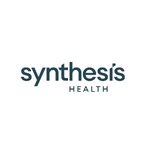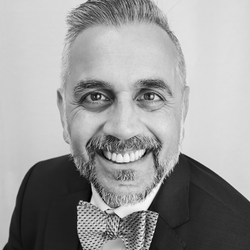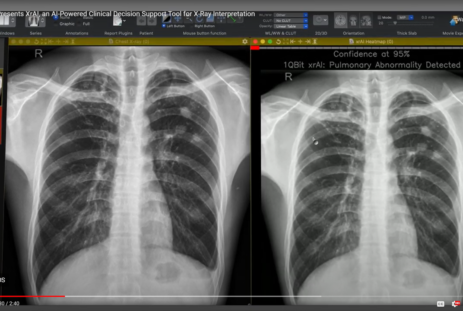
Leveraging AI to Enhance Treatment for Severe COVID Patients
AN IMPACT STORY
Identifying lung abnormalities on chest x-rays in real-time to better diagnose COVID-19.
When Deepak Kaura graduated from medical school at the University of Manitoba, he took the Hippocratic Oath, pledging to “consecrate my life to the service of humanity.” It’s an oath he takes to heart. Born and raised in Kenya, helping others has been the biggest driver of Deepak’s professional career and what ultimately motivated him to become Chief Medical Officer at Synthesis Health, a medical technology solutions company that’s leading XrAI, a Digital Technology Supercluster project.

XrAI is an AI-driven chest x-ray tool developed by Synthesis Health in partnership with healthcare organizations and physicians. It was developed to identify lung abnormalities on chest x-rays in real-time, allowing clinicians in emergency rooms and rural hospitals to better diagnose COVID-19 and other illnesses such as pneumonia, tuberculosis and lung cancer.
XrAI has been approved by Health Canada as a Class III medical device to support health providers in the fight against COVID-19. The software solution has been deployed by Trillium Health Partners in Ontario and will soon be available across Saskatchewan. Talks are also underway with health authorities in Greater Vancouver and B.C.’s Fraser Valley.
“The trust that Synthesis Health’s tool has garnered as a result of its rigorous approach is what I believe has led to such a prompt and positive response from the medical community,”
says Dr. Paul Babyn, Physician Executive of the Saskatchewan Health Authority, which conducted its clinical trial for XrAI much sooner than originally planned.

XrAI has been critical in the fight against COVID-19, where chest x-rays are an essential tool for identifying lung abnormalities in patients. The challenges faced by frontline teams trying to detect and treat COVID-19 include the time it takes to receive a formal report from a radiologist. Often the treatment teams rely on their own interpretation of an x-ray to manage a patient while waiting for a radiologist’s report, if they have access to one. These interpretations drive clinical decisions, including the decision to admit or discharge a patient. A late or incorrect diagnosis could result in an infectious patient being sent home and a rapid deterioration of their health.
“Our algorithm is the only one in the world that can run on a laptop without any Internet connectivity, which is ideal for remote and rural areas.” Deepak adds, “In my day-to-day practice as a pediatric radiologist, I can treat one child and family at a time. However, when you leverage technology and develop a solution such as XrAI, you can begin to help hundreds or thousands of people at a time. That is unbelievably empowering and beautiful.”
Canada is a leader in quantum computing and physics, and along with our diverse population and talented medical professionals, Deepak says Canada is poised to lead the way in digital health and make healthcare more equitable for people in smaller communities across the country and around the world.
“What if we could all receive the same level of care whether we were in a small, remote community or a large centre with specialists?” Deepak says. “I’m excited about what we can create in Canada with our healthcare data, knowledge and expertise and take it to those who need it most.”
“It’s one thing to make a software tool in a lab, but it’s a completely different thing to bring it into the real world,” says Jaspreet Oberoi, 1QBit’s (now Synthesis Health) Director of Machine Learning and Quantum-inspired Solutions. “The speed and efficiency of the XrAI deployment was a direct result of the collaboration empowered by the Supercluster.”
With XrAI seeking certification from the U.S. Food and Drug Administration, 1QBit (now Synthesis Health) is set to add to its team of more than 120 mathematicians, computer scientists, physicists, chemists, software developers, physicians, biomedical experts and quantum computing specialists. “Deploying the tool in Canada shows that we can replicate it across different global markets,” Oberoi says. “This is opening up opportunities we might not have without Supercluster support.”
View the Project

